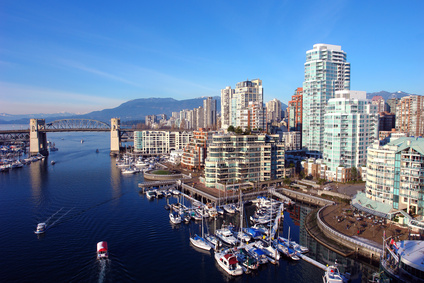As of writing, it's the second half of the year 2020. Industries and economies across the globe are still recovering from the devastating effects brought about by the pandemic. While some have already started to see better and brighter days, some are still stabilizing or are slowly moving on the way up. One of the economies where there's much speculation on is the real estate market.

In Vancouver, BC., in particular, there's that big question whether or not the real estate industry is still doing well. For those of that are looking to sell their home or looking for opulent properties like delray beach fl homes for sale, perhaps you're interested in knowing whether or not now is a good time to do so.
Fortunately, this article is here to answer all of these questions for you. Here, you'll have insights on how the Vancouver real estate market is doing, and why it's still a good idea to invest in real estate.
The Real Estate Market Is Stable, But Priorities Are Changing
In Vancouver, the real estate market is still stable. On the average, properties listed for sale only stay on the market for 17 days. Considering the economic changes that are felt by people today, this is quite an encouraging number. This means that people in Vancouver are still seeing the benefits of investing in real estate, among other forms of investments.
However, the only thing that has changed is the priorities in facilities that they're searching for, especially for those that are on the hunt for commercial properties.
This change in priority has to do with the demand of buyers for more ‘personal safety bubbles.’ This means wider elevators, lobbies, and sitting areas so they can maintain physical distancing.
Because it isn't clear, yet, as to when the pandemic is finally going to die down, businesses and residences alike still have safety as their priority. Hence, the manner of browsing homes has also shifted to more virtual and online means, rather than the usual emphasis on a physical open house.
For residential houses, apartments, and condominiums, much of the design is also going back to how architects envisioned properties way back in 1918. When a flu pandemic came, designers were also scrambling on how to make houses more sanitized and safer. The key was to create a safe haven–even if homeowners were stuck and kept at home for months, they wouldn't mind the confinement. Hence, today, the shift is also towards this need for safety and sanitation.
For example, the demand for properties with a powder room is more preferred than those without. The powder room allows guests to use the toilet, without the need for invading the master's bedroom and bath. For condominiums, creative design is also made on the balcony, where it can easily be converted into an office, especially if a work from home arrangement is necessary. Accordingly, open-air is also provided so homeowners can have access to clean air whenever they desire it.
The Short-Term Rental Market Is Slowing Down
Because of the pandemic, immigration has also stalled. Travel restrictions are expected to carry on at least until next year. Because of this, the short-term rental market has significantly slowed down.
First off, fewer tourists are coming in. Vancouver is a popular tourist city in British Columbia, Canada with beautiful places, such as Coal Harbour. So, with the current restrictions, this is an expected outcome.
Sales in condominium units are also going slower than normal. Frequent buyers of condominium units are usually the mom-and-pop market. Some of these are newly married couples, while others are immigrants. Most notably, too, is the fact that condominium units are usually bought by individual investors looking for passive income. They usually have these units rented out to students or young professionals. But, with schools also shifting to an online environment, the need for physical housing in this school year has reduced. This means a lower demand for condominium rentals.
The Real Estate Market Is Still Ruled By Possible Risks
In Vancouver, there are still possible risk factors that could negatively affect the real estate market. Some of these are:
Conclusion
All these said, it's safe to say that these are also speculations for the future. One can only speak for the current condition and trends in the market.
Generally, however, the real estate market is a relatively stable one, being that property is an asset that appreciates. However, given the current economic difficulties that the world is facing, it's normal to expect that the prices of properties will drop. Until the unemployment issue due to the pandemic is solved and the spending power of people will stabilize, it’s safe to say that the real estate market will continue to move along the trends and cycles that it's used to.